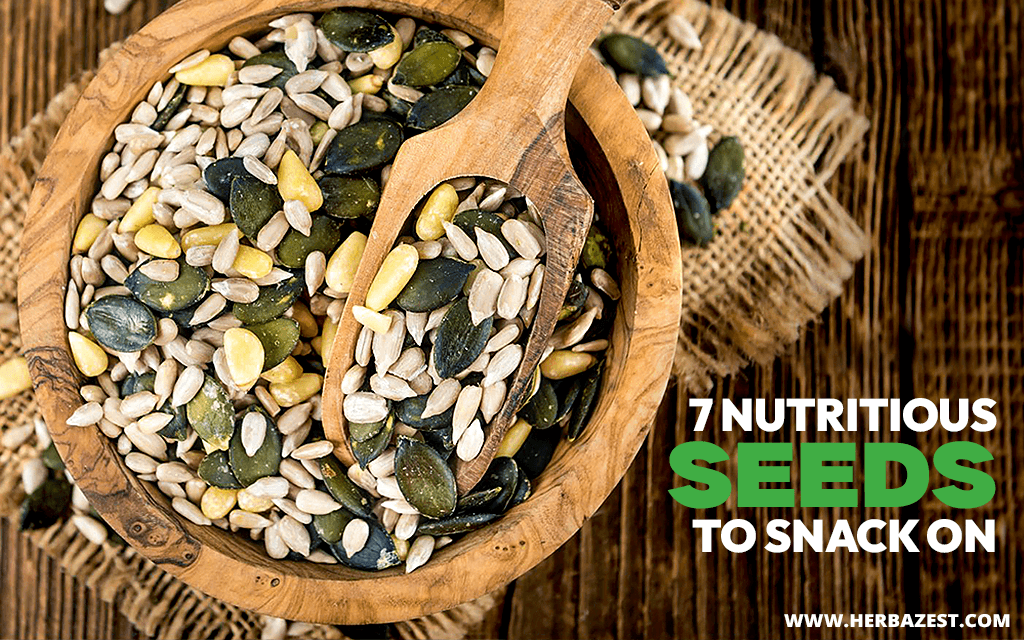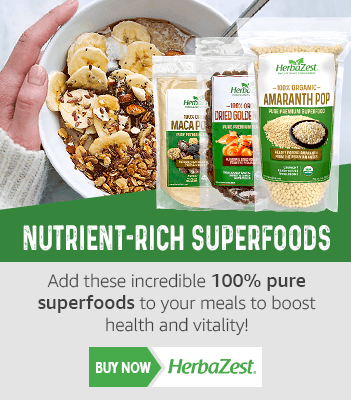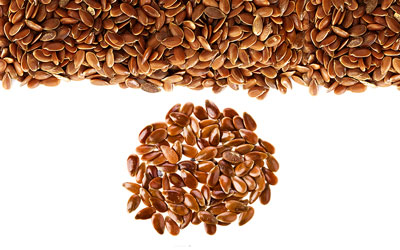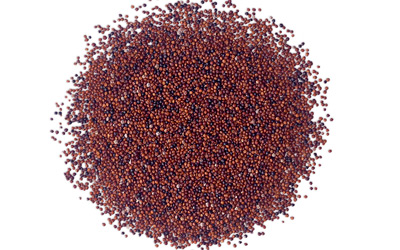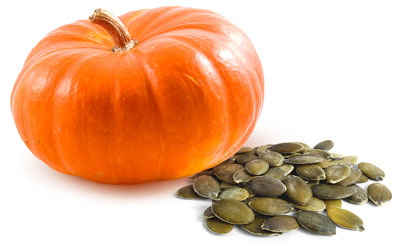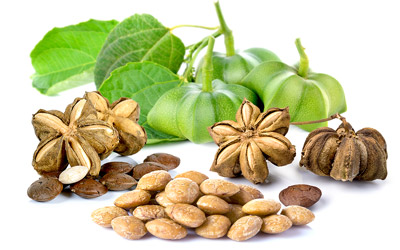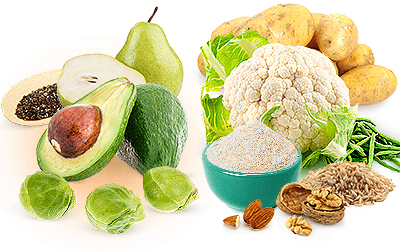Way before the dawn of civilization and recorded history, humans discovered seeds as a great source of energy. The large group of plants with edible seeds includes cereals, legumes, and nuts, all of which can be enjoyed around the world in a myriad of ways, significantly contributing to human nutrition and overall health.
Health Benefits of Seeds
Edible seeds are not only a powerhouse of plant-based protein, but also boast dietary fiber, healthy fatty acids, and essential minerals and vitamins. Beyond their nutritional value, the regular consumption of seeds reportedly improves cardiovascular health by keeping various risk factors for heart disease and stroke under control, including high blood pressure, high cholesterol, diabetes, and obesity. Consuming between 15 and 30 grams of assorted seeds per day would be enough to reap their multiple health benefits, particularly in the case of vegans and vegetarians, which require more plant-based protein.1,2
In spite of their amazing health benefits, seeds are not good for everyone, particularly those with allergies and food sensitivities.
7 Seeds for Healthy Snacking
Edible seeds are considered functional foods because they not only provide essential nutrients to the human diet but also improve general health and prevent diseases through their active compounds.
When it comes to nutritious seeds, there are many options out there. A large number of commercial products, such as fitness powders, shakes, muesli, breakfast cereals, protein bars, and other packed snacks, use seeds as functional foods in their formulations; however, many of them are high in added sugars, sodium, trans fats, and industrial preservatives, all of which make them considerably less healthy and even potentially harmful for the body.
Reading the labels is a must when buying manufactured goods. The less processed the seeds are, the better they are for your health. These are just seven examples of versatile seeds to snack on that boast essential nutrients and can be easily added to your daily diet:
1. Pumpkin Seeds
While pumpkin pulp is a favorite ingredient in a myriad of seasonal recipes, pumpkin seeds are incredibly rich in nutrients, making them a great snack for satisfying cravings during the day. Pumpkin seeds can be eaten raw without the kernel or roasted, which happens to be the most popular way of enjoying them. An ounce (28.35 g) of roasted pumpkin seeds offers 163 calories, 8.5 g of protein (17% DV), and 13.9 g of healthy fats (21% DV).3 All of the good stuff with almost zero carbs!
2. Sunflower Seeds
Sunflower seeds are well known for providing astounding amounts of nutrients. Copper, selenium, manganese, and zinc are the most abundant minerals in these seemingly inconspicuous seeds, along with essential vitamins, particularly vitamin E and B complex. Just an ounce of sunflower seed kernels, dry and roasted, can boost your energy levels with 165 calories, 5.47 g of protein (11% DV), 14.1 g of healthy fats (22% DV), and only 6.83 g of carbohydrates (2% DV).4
3. Chia Seeds
These tiny seeds are a true wonder of nature. They are a powerhouse of omega-3 fatty acids, which help improve heart health and reduce the risk of arthritis, psoriasis, lupus, and ulcerative colitis, among other inflammatory diseases. Not only does enriching bread with chia seeds help lower blood glucose levels, but simply snacking on chia seeds may induce satiety and reduce food cravings between meals. Chia seeds can be mixed into smoothies, yogurt, and salads for a nutritional kick. Chia puddings are also a great way to consume these mucilaginous, protein-rich seeds. Try some chia recipes and take advantage of their health benefits!
4. Flaxseed
Flaxseed (also known as linseed) has been a part of the human diet for thousands of years. The seeds boast unsaturated fatty acids, most notably omega-3 fatty acids, and also provide high levels of dietary fiber. Along with good amounts of essential minerals and vitamins, mainly copper, manganese, magnesium, and vitamin B complex, flax seeds have mild estrogenic properties. In fact, a study has shown that menopausal women with diabetes can benefit from flaxseed in dietary amounts. Whether they are raw, soaked overnight, or ground, they can be easily added to yogurt, porridge, smoothies like this peanut butter banana smoothie with quinoa pop, and baked goods like this chocolate banana bread with quinoa flour. Because they are so rich in both soluble and insoluble fiber, flaxseeds are often consumed to ease digestion and relieve constipation.
5. Kaniwa Seeds
Closely related to quinoa, kaniwa is an underrated superfood, and a great source of essential amino acids, healthy fats, and minerals, mainly iron and calcium. The small kaniwa seeds have a pleasant, nutty flavor, and there are many ways to add this Andean cereal to your daily meals. Similar to oats, you can easily use them to make this delicious key lime pie overnight kaniwa flakes or enjoy this chocolate yogurt with kaniwa pop as breakfast or dessert, among other delicious and nutrient-packed kaniwa recipes.
6. Sacha Inchi Seeds
On the superfood scene, sacha inchi is a rising star. According to research, plant-based protein consumption may increase longevity, and sacha inchi seeds are the best known vegetable source of protein, helping build strong muscles and promoting heart health thanks to their high levels of omega-3, -6, and -9 fatty acids. Adding these Amazonian seeds to your diet could not be easier: sacha inchi can be eaten as a snack, added to smoothies as a powder, and used to prepare a variety of sweet and savory recipes, like these dark chocolate bars with sacha inchi seeds, tomato zucchini focaccia with sacha inchi powder, or healthy sacha inchi seed granola.
7. Sesame Seeds
Ubiquitous in a variety of baked goods, such as artisan breads and Middle Eastern sweets, sesame seeds have conquered the culinary world with their mildly nutty flavor and nutritional value. These tiny seeds are a good source of dietary fiber and healthy fats, both of which are great for cardiovascular support and lowering cholesterol. They also contain plant-based protein, excellent for building muscle mass and healthy bones.
As you can see, in the world of functional foods, these nutritious seeds are true champions due to their availability and great dietary value. They are small in size but packed with essential nutrients, and you can take them everywhere in a trail mix or use them to prepare a myriad of healthy recipes. To get stronger and live longer, make it a habit to snack on seeds!
Sources
- Advanced Neurology, Seeds, 2020
- Canadian Medical Association Journal, Clinical nutrition: 7. Functional foods — more than just nutrition, 2002
- Circulation, Consumption of Plant Seeds and Cardiovascular Health: Epidemiologic and Clinical Trial Evidence, 2014
- Comprehensive Reviews in Food Science and Food Safety, Specialty seeds: Nutrients, bioactives, bioavailability, and health benefits: A comprehensive review, 2021
- Frontiers in Nutrition, Similarities and differences in the nutritional composition of nuts and seeds in Serbia, 2022
Footnotes:
- Hearth Foundation. (n.d.). Nuts, seeds and heart health. Retrieved January 18, 2024, from: https://assets.heartfoundation.org.nz/documents/nutrition/position-statements/nuts-and-seeds-position-statement.pdf
- Better Health Channel. (2023). Nuts and seeds. Retrieved January 18, 2024, from: https://www.betterhealth.vic.gov.au/health/healthyliving/nuts-and-seeds#how-to-include-nuts-and-seeds-in-your-diet
- FoodData Central. (2018). Seeds, pumpkin and squash seed kernels, roasted, without salt. Retrieved January 30, 2024, from: https://fdc.nal.usda.gov/fdc-app.html#/food-details/170557/nutrients
- FoodData Central. (2018). Seeds, sunflower seed kernels, dry roasted, without salt. Retrieved January 30, 2024, from: https://fdc.nal.usda.gov/fdc-app.html#/food-details/170563/nutrients

